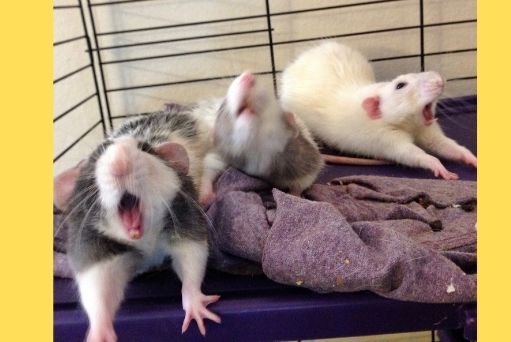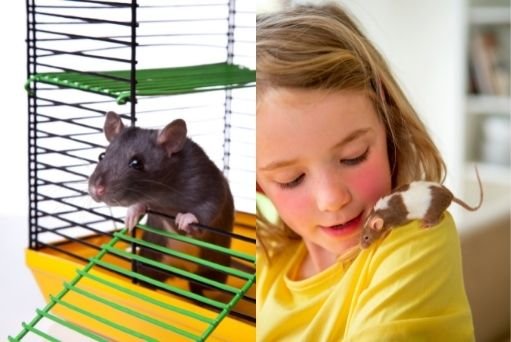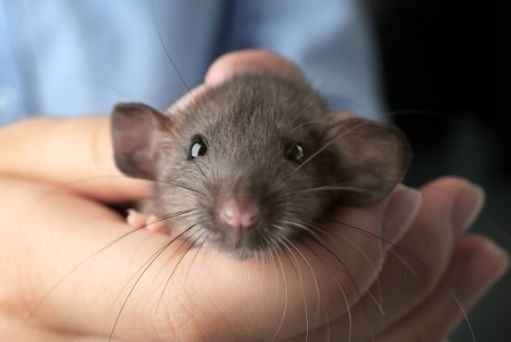A guide to keeping mouse as a pet
Although they are not as popular as dogs and cats, mice can be a great companion to humans. You can find this species in different colors and types. There are multiple reasons to keep a mouse as a pet – they are friendly, clean, and very active.
So, you will never have a dull moment with them. But similar to every other pet, they need to be taken care of in their own special way. Hence, if you have decided to keep mice as your pet, then this is the perfect guide for you.

What do mice eat?
Mice are omnivores; therefore you can feed them both plants and animals. Their diet should consist of 16% of protein and 4-5% of fat content. Here are some food items that will keep your mice healthy and happy:
- A small number of commercial rat cubes or rat pellets.
- Fresh vegetables and fruits like bananas, apples, bok choy, broccoli, carrots, citrus fruits, melon, peas, tomatoes, etc.
- Freshwater bowl at all times.
Make sure you do not feed your mouse with grains, seeds, sugar, mouse chips, garlic, chocolate, onions, lemons, oranges, etc. Moreover, biscuits, cooked pasta, cereals, sweets, cooked rice, etc. should be occasional.
Where to keep the mouse?
You need to arrange a place where your mouse can rest and live in. A cage is where the mouse spends a majority of its life so make sure it is safe, secure, and comfortable. Unlike hamsters, mice do not need that much space.
However, if you are planning to house more than one mouse, it is better to get a cage with sufficient space to keep them comfortable. This will also help in eliminating the risk of developing cage rage, a serious psychological disorder.
Additionally, plastic cages with tubes can risk the development of harmful bacteria, poisoning your pet and resulting in infections and bad odor. Although these cages look more fun than the simple steel cages, they can cause physical harm to your little pet. Avoid investing in cage design with tight spaces, tons of tubes, and low height.




How to properly handle mice?
Often people refrain from getting a mouse as a pet because they think they are hard to handle. However, they are a lot easier to handle than you may think. You can lift them comfortably by the root of their tail while slipping a hand under to cup them. Keep holding them until they become still and calm in order to protect them from slipping through the hands of leaping.
Generally, mice do not bite until they feel threatened. If they were to bite you, do not hit them, push them or let go of them. This is because it will scare them further, making it difficult for you to tame.
When you are taming a mouse, hold them over a soft surface and keep them closer to your body. This will make them feel safer around you. If you used the right approach, you can tame a mouse within a few weeks. Start by handling them for a couple of minutes every day, let them get used to your smell, voice, and face. When you are soft and comforting, they will warm up to you quicker than you would imagine.
What are some common health issues with mice?
Following are some of the health issues that pet mice might deal with:
- Tumors
This is a serious condition in mice, and they are more vulnerable to it as they get older. Moreover, they may be not benign and can be completely malignant within a couple of weeks. Symptoms of tumors in mice include:
- Swollen belly
- A lump or swelling on the fur
- Weight loss
- Bleeding from the genital area
- Loss of balance
- Being lethargic, hunched, or waddling
- Ticks, fleas, and mites
These issues are very common with mice especially the ones that are kept with other pets. The growth of mites, fleas, and ticks can result in excessive scratching, baldness, skin irritation, and even skin infection. These growths can make your pet distressed and annoyed. Symptoms of this issue are:
- Scabby skin
- Small insects on their fur
- Scaly or flaking skin
- Bugs on the skin
- Excessive scratching, rubbing, and physical discomfort.
- Uterine issue
This is a uterus issue that occurs in female mice. It is more common in older females that have bred a couple of times or have had babies too old or young. Some of the symptoms related to these health issues include:
- Incontinence
- A smelly discharge from genitals
- Bleeding from the genital area
- Swollen belly
- Ruffled coat




Final thoughts
Maintaining a mouse as a pet is easier than you think as they love human company. It is all about being well-informed and loving just like you would do with every other pet.
Come and see our category of Unusual Pets and have fun! Who knows you don’t fall in love with one?




